Smartcat Image Translation Agent
Get global-ready images instantly with Smartcat’s expert-enabled agent that translates and localizes image files in any language for fast, brand-consistent, pixel-perfect results.
Drop your files here or click to browse.
How Image Translation Agent Helps
Translate Text in Any Image
Launch global content faster by cutting handoffs and delays with Smartcat’s Image Agent that automatically translates embedded text in social media graphics, infographics, product visuals, and training images.
Preserve Original Layout & Brand Style
Maintain brand consistency across markets with an Image Agent that keeps your original fonts, colors, and layouts intact in every language.
Edit in Real Time
See live previews of your translated images and tweak layout, font, or color with full control before final download.
Trusted by Fortune 1000 Brands to Power Global Content
Results That Scale
50%
more productivity
“We’ve been able to increase our productivity by 50% while reducing our outsourcing costs by 50%. This has had a huge impact on our bottom line.”
400%
faster translation turnaround
“High costs and inconsistent translations were setting us back. By switching to Smartcat, we reduced translation costs by 70% and improved turnaround time by 400%.”
90%+
Course output
“Brink’s generated high-quality, on-brand AI learning content, which allowed them to roll out new training programs within days.”
Seamless Integration
Connect Smartcat with the tools your team already uses to streamline visual content creation and localization:
Figma
Localize your designs directly inside Figma without disrupting your creative workflow.
Adobe Experience Manager
Automatically translate and publish image-based content within your AEM ecosystem.
Salsify
Push translated product visuals into your digital shelf with a single click.
Akeneo
Automate image localization in your PIM system to support multilingual product rollouts.
Get consistent, high-quality images to every market
Discover More Smartcat Agents
Explore Smartcat’s library of expert-enabled AI Agents built for real-world content workflows:
PDF Translation Agent
Automatically extracts and translates text from static PDFs while preserving design and layout—no need to rebuild files manually.
Document Translation Agent
Instantly translates editable docs like Word and Google Docs while keeping formatting, tone, and structure intact.
Learning Content Agent
Creates and localizes training modules, slide decks, and internal docs in one seamless workflow for faster program rollout.
Media Translation Agent
Translates audio and video content into any language, with output as subtitles or voiceover—no reshoots needed.
Website Translation Agent
Automatically translates and publishes multilingual pages without breaking structure or needing dev handoffs.
Software Localization Agent
Translates UI elements at scale to ensure every user sees your product in their native language.
Quality Assurance Agent
Scans translated content for accuracy, formatting, and brand tone before publishing—cutting down on review time and errors.
Scale with Secure AI
Role-based access controls
Adjust AI Agent access based on your organizational structure, including department, role, or region.
SSO and identity management
Seamless integration with your existing SSO provider ensures the enforcement of authentication standards.
SOC 2 compliant infrastructure
Uphold the strictest data security and governance standards.
AI interaction oversight
Gain centralized visibility into AI usage across your teams and workflows.
Audit trails and transparency
Track automated actions precisely, ensuring full compliance and accountability.
Data encryption at rest and in transit
Enterprise-grade encryption protocols ensure sensitive content remains secure throughout its lifecycle.
AI Agent Resources & Insights
FAQs
How does the Image Translation Agent work?
Smartcat’s Image Agent uses OCR (Optical Character Recognition) to detect and extract all visible text from images, regardless of font or formatting. It then applies AI translation that has been optimized with your brand's glossary and tone of voice. The Agent creates the translated image with original design features fully intact. The result is a pixel-perfect visual in your target language, ready for review and download.
This automation eliminates repetitive design work, a common bottleneck in global visual content workflows. As Stanford HAI notes, AI agents work best when they're embedded in real-world content loops, helping humans offload routine, error-prone tasks while retaining editorial control.[1]
What level of accuracy can I expect?
Smartcat’s Image Agent achieves over 90% translation accuracy on average in real-world use. It continuously improves by learning from previous human corrections and glossary inputs. This creates a feedback loop that sharpens both recognition and translation quality over time. According to the Max Planck Institute, AI agents integrated into human workflows improve significantly when guided by structured learning and feedback mechanisms.[4] This aligns with Smartcat’s expert-enabled model, where human-in-the-loop refinement is a core feature.
How fast is image translation?
Translation is nearly instantaneous. Each image typically takes under 10 seconds to process. Even large batches are completed in minutes.
For global teams, this means going from static assets to market-ready visuals in less than a day. The productivity impact is substantial: AI-powered content agents can compress entire workflows into a fraction of their manual time, enabling marketing and L&D teams to meet tight launch timelines without bottlenecks.[3]
Who benefits from using the Image Agent?
Marketing, learning & development (L&D), UX/UI, product, and global content operations teams benefit the most. These teams often manage large volumes of visuals tied to campaigns, training modules, or software interfaces.
By automating the translation and recreation of these assets, Smartcat enables them to support multilingual needs without expanding headcount or slowing delivery cycles. Research shows that agents embedded in collaborative settings increase task throughput and reduce manual coordination costs.[2]
What formats does the Image Agent support?
The Image Agent supports a wide range of visual formats: PNG, JPG, BMP, TIFF, GIF, SVG, and vector-based or layered formats such as PSD, AI, and Sketch, up to 20MB per file. This flexibility means you can localize everything from digital ads to infographics and course slides without needing to convert or rebuild files manually.
Image-specific AI agents must be able to parse visual and text structures simultaneously to be effective, as noted in policy briefs on multimodal agent design.[1]
Can I maintain brand-specific language and visual standards?
You can upload your organization’s style guide, glossary, and brand fonts. The Image Agent applies these during both translation and image reconstruction, ensuring compliance with voice and design standards.
Each translation suggestion can be reviewed and edited, further teaching the system your preferences. This form of adaptive customization is central to the effectiveness of expert-enabled agents, which improve not only language output but also context and domain precision over time.[4]
Can I involve my team in review and approval?
Smartcat enables real-time collaboration across roles. You can invite as many collaborators as required with Smartcat’s unlimited seats model. Internal reviewers can be assigned to validate translations and design alignment directly in the platform.
You can also invite subject matter experts and localization experts from Smartcat’s Marketplace if needed. These collaborative flows not only improve content quality but also build trust and transparency in agent-assisted work.[2]
How do I get started?
Simply drag and drop your images into the Smartcat platform. The Image Agent will instantly process and translate the text, display a live preview, and allow you to edit the visual on the spot.
Once approved, your localized images are available for download or further use. No design tools or engineering involvement needed. You achieve a streamlined path to global-ready content.
Sources
Stanford HAI. (2024). Simulating Human Behavior with AI Agents [Policy Brief].
https://hai.stanford.eduAI Now Institute. (2024). Agent governance: A field guide.
https://ainowinstitute.orgKalaidos University of Applied Sciences. (2024). What are AI agents and how do they work?
https://www.kalaidos-fh.chMax Planck Institute for Intelligent Systems. (2024). Integrating AI Agents into Human Lives via a Simulation Approach.
https://www.is.mpg.de











